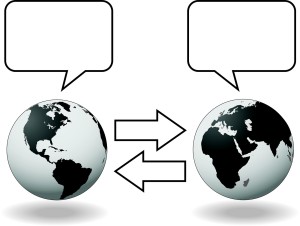
Medical jargon is already confusing to individuals who lack a working knowledge of the medical industry. In order to help patients understand, healthcare providers must elaborate on their medical explanations. However, translating medical terms becomes a serious problem when there is not a direct translation for a particular term in a particular language. This is not a rare occurrence; many medical professionals in different parts of the world deal with this exact problem. Medical translation companies bridge the communication gap and help ensure that the meanings of important medical terms are not lost in translation.
The Challenge of Translating Medical Terms in Cambodia
A good example of the meaning getting lost in translation in the medical field is featured in an article on The Phnom Penh Post. In it, author Louisa Wright described how psychologists in Cambodia found difficulty in finding the appropriate equivalent of psychological trauma terminology in Khmer, the local language. Michael Hirsch, the assistant professor of the Royal University of Phnom Penh’s (RUPP) psychological department cites the lack of consistent translations agreed upon by medical professionals as the real problem. Now, the RUPP’s psychology and social work departments are hard at work to complete the first comprehensive English-Khmer psychological dictionary.
However, this is not the only obstacle in medical translation. It is extremely important for both the translator and the translation editor to be knowledgeable of the appropriate medical or pharmaceutical terminology required. A translator cannot hope to produce accurate translations if he or she is not familiar with the specific medical field. For instance, a company in the pharmaceutical industry that manufactures products, which countless patients depend on, should never entrust the translation to a linguist with a limited or no background in pharmacology.
Another important issue in medical translation is the education level of the translated text — for example, should the translation target a medical professional or should it be in layperson’s terms. This, of course, depends on the target audience. If the medical company is releasing products and information materials to a professional medical staff, medical-level terminology should be used. If the intended end-users are patients, it is important to translate to the appropriate educational grade-level of the target audience.
Synonymous medical terms can also pose problems for translation. For instance, Barlow’s syndrome is also known by other names like Moeller-Barlow disease and vitamin C deficiency syndrome. The translator must then choose which term is more commonly used in the target audience’s geographical area or region. The same is also true for common metaphors used by doctors like “critically ill”, “terminal disease”, or “to expire”. The correct localization of the translated terms is absolutely critical in order to provide accurate and appropriate medical information.
Translating medical terms is a serious business. Precise medical translations should remove additional risk, and properly and clearly communicate to healthcare providers and patients. Medical professionals should invest only in services provided by certified medical translators from a trusted translation company like Excel Translations.
Sources:
Finding the right words to translate trauma, The Phnom Penh Post, July 4, 2015
Terminology Issues Unique to Medical Translation, Term Coordination Unit